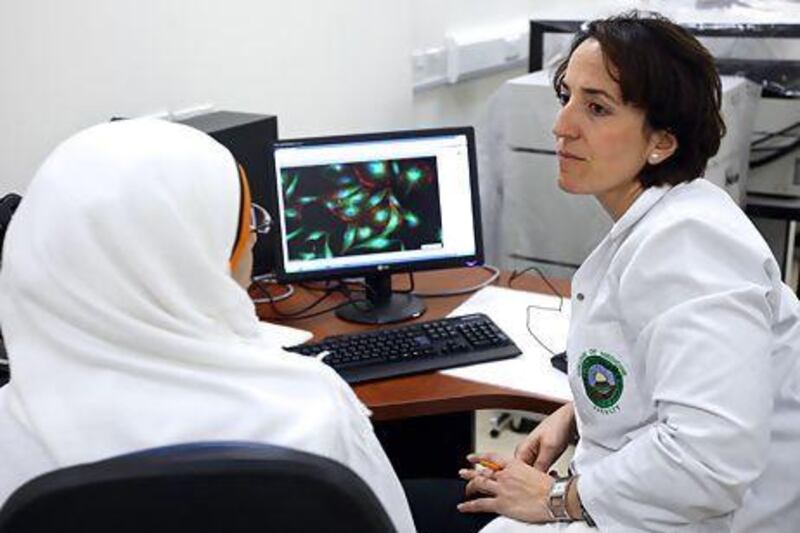Rania Zaarour, an assistant professor and a cell biologist at the University of Sharjah, became the first UAE scientist to receive a US$20,000 L'Oreal-Unesco For Women in Science research fellowship three years ago. In November, 10 women from 17 Arab countries will be awarded €15,000 (Dh73,186) each from the L'Oreal-Unesco For Women in Science Pan Arab Fellowship programme. Ms Zaarour, 38, from Lebanon talks about the level of corporate support for scientific studies in the UAE.
How much corporate support is there for scientific research in the UAE?
There are some grants available from the private sector. Julphar Pharmaceuticals does some research and development in the UAE but most international drug companies do not have their lab work here. One of my colleagues received Dh1 million from the Terry Fox Foundation for cancer research. L'Oreal also awards scientists here.
Why do we not see more research papers from the Arabian Gulf and the UAE?
Compared to North America and Europe, the number of people doing research in the UAE and Gulf is small. So the productivity level is also small. The technology and infrastructure is all here, but the UAE has to create a culture of research and not just pay huge salaries. Scientists in the UAE get some of the highest salaries in the world.
How can the country build this culture of research?
We need more people in higher places to talk about research and we need to imprint on the public the importance of research. Science requires patience and you have to accept a lot of failure and criticism along the way. You need to have a passion for it.
What is the level of enthusiasm among students at your university?
The University of Sharjah started a combined master's and doctoral degree in molecular medicine and translational research. Next month, we will have three students graduating in the first batch. My research team has three students, including two Emiratis.
What are you currently working on?
I am looking into the changes that occur in a cancer cell, and the factors that lead to it. This can be used to do targeted therapies.
Why do we see few women researchers in the Gulf?
The number of women is fewer compared to men than the outside world because of cultural differences. Here women have different roles and priorities, and family values are strong. That's important as well. Good life is somewhere in between. And women need to be encouraged. Among the eight faculty members in my team, three are women, including myself. But these factors are there outside as well. Even in the United States, women have priorities other than career or they don't want to compete.





